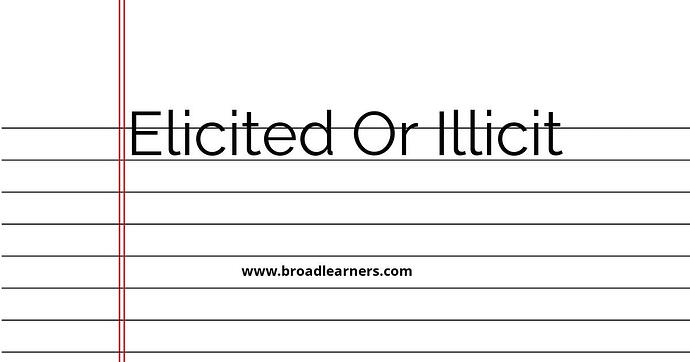'Elicited' and 'illicit' are commonly confused words in English grammar. Understanding the difference between 'elicited' and 'illicit' is important to use them correctly in written and spoken English.
'Elicited' is a verb that means to draw out or obtain a response, information, or reaction from someone. It is often used in the context of eliciting a response or eliciting a reaction.
'Illicit' is an adjective that means illegal, forbidden, or not permitted by law or rules. It is used to describe something that is against the law or morally wrong.
Let's take a closer look at the meanings and usage of 'elicited' and 'illicit'.
| 'Elicited' | 'Illicit' |
|---|---|
| The word 'elicited' is a verb that means to draw out or obtain a response, information, or reaction from someone. | The word 'illicit' is an adjective that means illegal, forbidden, or not permitted by law or rules. |
|
|
To remember the difference between 'elicited' and 'illicit', it can be helpful to focus on their meanings and contexts. 'Elicited' is about obtaining a response or reaction, while 'illicit' is about something being against the law or morally wrong.
Here are some examples of correct usage:
- The teacher's question elicited a thoughtful response from the student.
- Using illicit substances can have severe consequences for one's health.
Remembering the correct usage of 'elicited' and 'illicit' will improve your grammar and communication skills.
